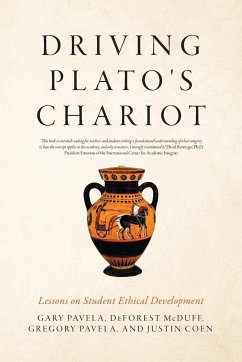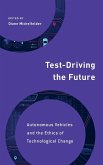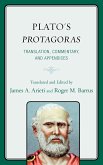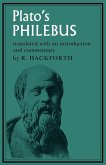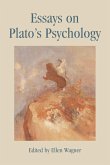"The value of this book is its focus on relationally, stories, and human connection. The authors situate academic integrity within ethical decision-making rather than within a rule-compliance framing. This work is rooted in compassion, self-reflection, gratitude, and courage. It is as inspiring as it is instructive . . . ." -Sarah Elaine Eaton, PhD, Editor-in-Chief of the International Journal for Educational Integrity The authors of Driving Plato's Chariot-accomplished professionals in applied ethics, public health, economics, and law-share insights gained through helping thousands of students explore core components of human thriving, including self-insight and self-management, empathy, trust, truth-seeking and truth-telling, joy, resilience, and purposefulness. What they've learned goes beyond issues related to academic integrity and encompasses the importance of using evocative stories and creative introspection to help students weave competing components of human nature into an admirable life (a main theme in Plato's chariot allegory). Driving Plato's Chariot draws upon core lessons learned in the Harvard University "Grant Study'' of adult development. Study director George E. Vaillant, M.D. summarized those lessons in one compelling conclusion: Don't try to think less of yourself, but try to think of yourself less. Overall, the authors suggest we're likely to think of ourselves less when we're expressing gratitude, deeply engaged in learning and exploring, emulating "lives of integrity," and devoting ourselves to a compassionate cause greater than ourselves. "A book at the interface of character development and rehabilitation, of appreciation for scholarly ideas and ideals . . . [written] with equal parts of rigor, buoyancy, and grace." -David B. Allison, Ph.D, Distinguished Professor of Epidemiology and Biostatistics, and Academic Dean, Indiana University School of Public Health-Bloomington
Hinweis: Dieser Artikel kann nur an eine deutsche Lieferadresse ausgeliefert werden.
Hinweis: Dieser Artikel kann nur an eine deutsche Lieferadresse ausgeliefert werden.

